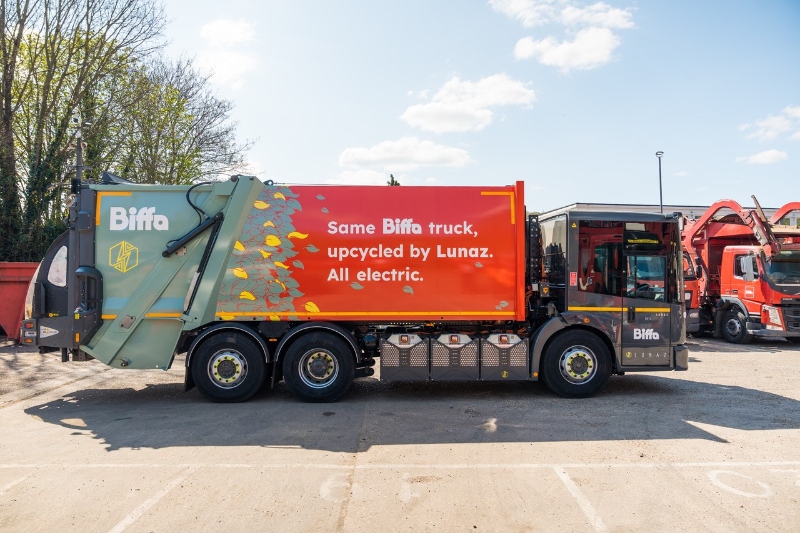

As I move into the second half of my year as CIWM President, I’m pleased that we’ve had some great feedback, from across our membership, the wider sector and beyond, on the 2023/24 Presidential Report. Entitled This is What We Do, this year’s report is designed to showcase our world-class recycling and waste services and the UK’s circular economy pathfinders.
At a time of much challenge and significant opportunity, and as we continue to transition toward greater resource efficiency, towards net zero and a more circular economy, we thought this was an important time to restate ‘what good looks like’ in this crucial sector. The report also seeks to underline the benefits that a focus on good communications and engagement brings to a sector that so often hides itself under a bushel.
Our institution and its members are all, in one way or another, striving for a world beyond waste. In the process, we’re also all engaged in delivering vital recycling, recovery and waste services that help to protect human health and the environment, and to contribute to a thriving economy and to clear social value. Why? Because this is what we do.
We often underestimate how good we are here in the UK when it comes to maintaining the highest standards of urban and rural cleanliness (not everywhere, granted, there remain areas of challenge), and when it comes to the facilities, service standards and infrastructure to safely handle the waste of these densely populated islands. World-class you might say.
We also underestimate how little most people – including many of our politicians – understand the scale and breadth of the sector’s services. Repeated polls demonstrate this, and recent news that MPs are generally not supportive of policies to reduce single-use packaging is no surprise. What should we take from that? Well, for a start we should do all that we can to celebrate the UK’s recycling and waste sector, and to push it still further through effective storytelling.
The report provides key facts, infographics, and case studies of the best of our sector’s services, including a good selection of innovative and funky plant and vehicles. In a world where communications and how we all consume information has moved on apace, we’re pleased that this year’s report takes a different tack. We’ve gone digital to shine a light on what we do, and we’re looking to add reels and tiles of content and to continue to share the best our sector can offer.
The UK’s economy – the fifth largest in the world – produces around 222 million tonnes of all types of wastes each year requiring effective management solutions. This includes materials such as dredging spoils, mineral wastes, metallic wastes, construction and demolition wastes, soils, and wood waste, as well as the more familiar Commercial and Industrial (44m tonnes of it) and wastes from households (a ‘paltry’ 22.8m tonnes). The hard-working women and men in the sector collect this material every day, and we manufacture and commission the bins, boxes, tanks, and skips needed to do it.
We design and buy the trucks, we train expert teams to drive and maintain the vehicles, to collect, transport, sort, and transfer waste and resources across the UK and beyond. And finally, we treat, recycle, reprocess, dispose, and market and sell the resulting materials and energy produced, and manage the contracts and support services required to keep this material moving, deploying expertise to responsibly steward vast volumes of society’s discards. This is what we do.
In terms of hardware and infrastructure, the good people of this sector design, plan, build, and operate thousands of facilities, some pretty basic but many deploying highly advanced technology and mind-blowingly sophisticated engineering. This includes over 3,500 recycling and recovery plants, 40 R1 energy recovery facilities, 91 other incineration plants and 629 engineered landfills and the aftercare and restoration operations of many more.
The vast majority of these across the UK are operated by skilled and trained people within the complex licence and permitting conditions expected of a world-class industry. 140,000 diverse and dedicated professionals, a sector investing £15bn over a decade and adding £11bn worth of value to our economy every year. Delivering and operating a world-class range of assets, deploying skills and ever-evolving technology for continuous improvement. This is what we do.
Of course, the most exciting aspect of what we do is in forging the way forward, towards greater material efficiency and resource productivity, towards further carbon reduction and towards a more circular economy. Recycling and recovery have climbed to impressive levels over the past couple of decades but have stalled.
The combined package of regulatory reform that came from the latest Waste & Resources Strategies, enabled in the Environment Act, all adds up to potentially world-leading regulation. Some delay was inevitable for such a ground-breaking approach, and we’re pleased now that the UK Government and the Devolved Administrations are delivering on this – and the social, economic, and environmental benefits that will follow.
We also want a new generation of resource managers and need new champions (including in political circles), so we’ll continue to engage and get our points across in fresh ways. It has to be what we do.
This article first appeared in the Spring issue of LAPV. To subscribe for free click here.